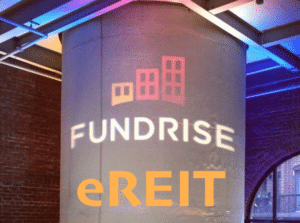Real estate crowdfunding is one of the most popular forms of investment-based crowdfunding in the industry today. That is why it has already accounted for millions of dollars in project funding in just the last couple years. As the popularity and viability of this market segment continues to grow year over year, so do the number of portals and deals. With an estimated 80-100 real estate crowdfunding portals currently existing in the U.S. alone, each offering their own deals (often catering to a particular niche sector), it’s easy to see how even a willing investor might have trouble simply finding the right deal to invest in. Luckily new options are sprouting up to help better connect investors with viable projects.
 It’s hard to speak of such a new industry as being fragmented already but fragmentation is becoming a real issue. The number of portal and deal options continues to grow exponentially, not just in the U.S. but globally. While there are obviously limits to the number of portals that can economically co-exist (and all signs point to a reduction in the total number of portals) there really is no limit as to the number deals that can be funded, let alone the differences in terms/structures between deals. This is why new real-estate crowdfunding centric investment funds and aggregated marketplaces like these are quickly becoming necessary.
It’s hard to speak of such a new industry as being fragmented already but fragmentation is becoming a real issue. The number of portal and deal options continues to grow exponentially, not just in the U.S. but globally. While there are obviously limits to the number of portals that can economically co-exist (and all signs point to a reduction in the total number of portals) there really is no limit as to the number deals that can be funded, let alone the differences in terms/structures between deals. This is why new real-estate crowdfunding centric investment funds and aggregated marketplaces like these are quickly becoming necessary.
New Real-Estate Crowdfunding Investment Funds.
2016 brought with it a new concept (well new for the crowdfunding industry anyway); that of a crowdfunded investment fund for investing in qualifying real estate projects.
If you are not familiar with how an investment fund works, let me explain briefly. Under a fund model, rather than finding and choosing between individual real estate projects to invest in, an investor simply invests a given amount of money (which is pooled with money from other investors) into a fund entity. The fund entity is run by a manager(s) who will decide what real estate projects to invest the fund’s money in given certain general pre-established criteria. Of course, the manager will receive some form of compensation for this service.
 One example of this fund concept is the new investment fund created by AlphaFlow. While informally launched in September of 2015, the final offering documents have yet to be released. Luckily I was able to touch base with Ray Sturm, CEO of AlphaFlow and the primary manager of the fund, and he gave me some details about the fund’s structure and focus:
One example of this fund concept is the new investment fund created by AlphaFlow. While informally launched in September of 2015, the final offering documents have yet to be released. Luckily I was able to touch base with Ray Sturm, CEO of AlphaFlow and the primary manager of the fund, and he gave me some details about the fund’s structure and focus:
- Maximum Offering Size: $10 million.
- Minimum Investment: $25,000.
- Eligible Investors: Accredited investors only (being offered via 506(c)) with family offices also expecting to participate.
- Investment Strategy: Invest in 1st lien residential debt offerings (with a max LTV of 75%) across the P2P space while creating a portfolio that is diversified across geographies, platforms, sponsors, and assets. Target Platforms include LendingHome, AssetAvenue, Patch of Land, PeerStreet, Sharestates (may include 1-2 investments on other platforms as well).
- Target Return: 9% net
- Expected Term: Up to 18 months. The fund will invest in debt with terms no longer than 12 months. Unless a deal repays within 90 days of the fund’s launch, principal will be repaid to investors pro-rata instead of being reinvested.
Says Ray about the product;
“We’re excited to offer a truly diversified fund that spans not only numerous projects and sponsors, but even multiple platforms. We’re working with a number of great platforms, but we’re aligned completely with investors. Our intention is to invest in the best deals and because we have our own money in the game there is simply no incentive to support deals we don’t love.”
 As far as investment in the fund, according to Ray AlphaFlow has already received over $3 million in pledges to date. This is particularly impressive considering no real marketing has yet been done to promote the offering. Ray also told me that he expects the fund to be very well received by the market once the offering is officially made live and formal marketing efforts have commenced.
As far as investment in the fund, according to Ray AlphaFlow has already received over $3 million in pledges to date. This is particularly impressive considering no real marketing has yet been done to promote the offering. Ray also told me that he expects the fund to be very well received by the market once the offering is officially made live and formal marketing efforts have commenced.
In contrast to AlphaFlow’s higher end, 506(c)/accredited investor only, fund offering, we have Fundrise’s new offering which is on the other end of the spectrum. In early December 2015 Fundrise debuted its SEC approved $50 million Regulation A+ offering. Here are some details on the offering from Fundrise’s F.A.Q. and the Offering Circular:
- Maximum Offering Size: $50 million.
- Minimum Investment: $1,000.
- Eligible Investors: Both accredited and non-accredited investors (being offered as a Regulation A+ offering) provided they are U.S. residents.
- Investment Strategy: Investing in cash flowing commercial real estate properties across the US as well as real estate backed debt and debt-like instruments. The intent is to create a portfolio of investments that generate a low-volatility income stream with consistent cash distributions.
- Target Return: At least a 15% annualized return.
- Expected Term: Not specified, other than to say “[s]ubject to then existing market conditions, the Fundrise eREIT expects to consider alternatives for providing liquidity to our shareholders beginning five years from the completion of this offering.”
 It is important to take note of the fact that, unlike AlphaFlow, Fundrise is structuring its offering as a continuous offering. This means that they are electing not to open the whole $50 million up for investment at once, but instead selling off little pieces at a time. To date, Fundrise has opened two tranches of the fund for investment ($1 million and $1.5 million respectively), each of which was fully funded and oversubscribed.
It is important to take note of the fact that, unlike AlphaFlow, Fundrise is structuring its offering as a continuous offering. This means that they are electing not to open the whole $50 million up for investment at once, but instead selling off little pieces at a time. To date, Fundrise has opened two tranches of the fund for investment ($1 million and $1.5 million respectively), each of which was fully funded and oversubscribed.
New Marketplace Aggregators For Open Investments.
For those investors who’s preference is still to select their own projects to invest in rather than trust (or pay a commission to) a fund manager, new marketplace aggregators are poised to make it much easier for them to find and invest in available deals. Among them is AlphaFlow and Property.com.
AlphaFlow’s model is quite simple really, provide users with the technology to combine their various individual crowdfund accounts in one place so they can be more easily viewed and dealt with. For example, let’s say a particular investor has investment accounts with LendingClub, Prosper and Patch of Land (each of which is coincidently already identified as a platform connected with AlphaFlow). Rather than having to log on to the 3 individual sites, check 3 separate investment portfolios etc., with AlphaFlow’s new platform that same investor can now set up an AlphaFlow account and see all of their investments in one consolidated dashboard.
 Now you might be saying to yourself, this sounds like that mint.com app, or that app I downloaded years ago to keep my Groupon and Living social coupons in order. True, this is based on the same premise, but that doesn’t make it any less effective or necessary in this industry. Moreover, AlphaFlow’s consolidated market boasts additional benefits beyond the simple convenience of compilation. These include: allowing investors to more easily evaluate and compare deals across multiple platforms, reporting of aggregate investor gains/losses across all platforms, and automatic payment monitoring to track whether investors are getting their promised return, with investor alerts if something is off.
Now you might be saying to yourself, this sounds like that mint.com app, or that app I downloaded years ago to keep my Groupon and Living social coupons in order. True, this is based on the same premise, but that doesn’t make it any less effective or necessary in this industry. Moreover, AlphaFlow’s consolidated market boasts additional benefits beyond the simple convenience of compilation. These include: allowing investors to more easily evaluate and compare deals across multiple platforms, reporting of aggregate investor gains/losses across all platforms, and automatic payment monitoring to track whether investors are getting their promised return, with investor alerts if something is off.
Property.com offers a somewhat different product than AlphaFlow. Their focus is not so much on aggregating reporting and accounting, but on aggregating access to open real estate deals. By setting up an account with Property.com, an investor will be given access to open deals across numerous portals (boasting over 100 data sources around the web). The investor can also search through, and sort, all of the available deals based on various criteria such as property type, deal type, etc. This may sound similar to AlphaFlow’s model discussed above but Property.com has some distinct differences, I assure you. First off, Property.com appears to intend to offer its own proprietary deals on the site as well as those from other sites. Something AlphaFlow does not appear to be doing at the moment but may in the future. Second, Property.com offers additional unique benefits such as providing users with: the ability to find and purchase available investment properties (both commercial and residential), the ability to actually list properties for sale, and direct access to lenders to help get deals funded.
Why This Is All Good News For The Industry.
The mere fact that the real estate crowdfunding market has grown to the point of needing services like these in the few short years it has been around is a real testament to the strength and attractiveness of this market. People want to invest in real estate, they always have and they always will. With real estate crowdfunding people now have access to deals and opportunities they could not even have imagined ten, or even five years ago. With that, however, comes the kid in the candy store dilemma and the need for funds and aggregators.
 In my opinion, funds take some of the ”direct investment” cache out of real estate crowdfunding. That being said, they do make it easier for less experienced/more passive investors to get in the game. As long as they don’t end up becoming just like the traditional real estate funds of the past (e.g. high buy-ins. low returns, large management fees etc.) I am all for it. As for aggregators like AlphaFlow and Property.com these are basically no-brainers. Tech that makes it easier for investors to find and invest in projects as well as keep track of their own portfolios? Um, let me think… Yes, please!
In my opinion, funds take some of the ”direct investment” cache out of real estate crowdfunding. That being said, they do make it easier for less experienced/more passive investors to get in the game. As long as they don’t end up becoming just like the traditional real estate funds of the past (e.g. high buy-ins. low returns, large management fees etc.) I am all for it. As for aggregators like AlphaFlow and Property.com these are basically no-brainers. Tech that makes it easier for investors to find and invest in projects as well as keep track of their own portfolios? Um, let me think… Yes, please!
This is only the beginning folks. As the real estate crowdfunding industry continues to grow, expect to see more ancillary services popping up to make it easier for investors to find viabledelas, including those outside the U.S.
 Anthony Zeoli is an experienced transactional attorney with a national practice. Specializing in the areas of securities, commercial finance, real estate and general corporate law, his clients range from individuals and small privately held businesses to multi-million dollar entities. Zeoli is also an industry-recognized crowdfunding and JOBS Act expert who, most recently, has drafted a bill to allow for an intrastate crowdfunding exemption in Illinois, a copy of which can be found on his website: IllinoisCrowdfundingNow.com. Zeoli is Secretary and board member of the Crowdfunding Professional Association (CFPA). He is also currently actively involved with the entrepreneurship program at the University of Illinois at Chicago as both a mentor and a student advisor and is an active advisory board member of the New York Distance Learning Association (NYDLA).
Anthony Zeoli is an experienced transactional attorney with a national practice. Specializing in the areas of securities, commercial finance, real estate and general corporate law, his clients range from individuals and small privately held businesses to multi-million dollar entities. Zeoli is also an industry-recognized crowdfunding and JOBS Act expert who, most recently, has drafted a bill to allow for an intrastate crowdfunding exemption in Illinois, a copy of which can be found on his website: IllinoisCrowdfundingNow.com. Zeoli is Secretary and board member of the Crowdfunding Professional Association (CFPA). He is also currently actively involved with the entrepreneurship program at the University of Illinois at Chicago as both a mentor and a student advisor and is an active advisory board member of the New York Distance Learning Association (NYDLA).
Have a crowdfunding offering you'd like to share? Submit an offering for consideration using our Submit a Tip form and we may share it on our site!


